<< Previous | Displaying results 2251-2275 of 6769 for "" | Next >>
Fela was liberated at Bergen-Belsen by the British army in 1945. She went to a displaced persons (DP) camp administered by the Americans in Feldafing, near Munich. She married in the DP camp in 1946, and eventually immigrated to the United States.
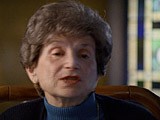
Bella was the oldest of four children born to a Jewish family in Sosnowiec. Her father owned a knitting factory. After the Germans invaded Poland in 1939, they took over the factory. The family's furniture was given to a German woman. Bella was forced to work in a factory in the Sosnowiec ghetto in 1941. At the end of 1942 the family was deported to the Bedzin ghetto. Bella was deported to the Graeben subcamp of Gross-Rosen in 1943 and to Bergen-Belsen in 1944. She was liberated in April 1945.
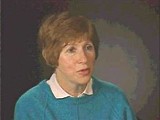
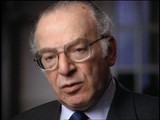
Norbert studied law and was a social worker in Berlin. He worked on the Kindertransport (Children's Transport) program, arranging to send Jewish children from Europe to Great Britain. His parents, who also lived in Berlin, were deported in December 1942. Norbert, his wife, and their child were deported to Auschwitz in March 1943. He was separated from his wife and child, and sent to the Buna works near Auschwitz III (Monowitz) for forced labor. Norbert survived the Auschwitz camp, and was liberated by US…
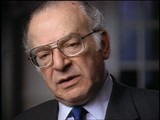
Alice grew up in a small village in Czechoslovakia. She was the middle of three daughters in a well-to-do, close-knit family. Her parents were religious and active in the Jewish community. After the German annexation of parts of Czechoslovakia in March 1939, antisemitism became more pronounced. Alice's uncle, a businessman who had moved to Great Britain, helped her parents arrange to send Alice and her two sisters on a Kindertransport (Children's Transport) to Britain. The sisters lived in a children's…
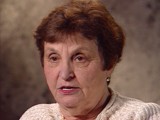
Alice grew up in a small village in Czechoslovakia. She was the middle of three daughters in a well-to-do, close-knit family. Her parents were religious and active in the Jewish community. After the German annexation of parts of Czechoslovakia in March 1939, antisemitism became more pronounced. Alice's uncle, a businessman who had moved to Great Britain, helped her parents arrange to send Alice and her two sisters on a Kindertransport (Children's Transport) to Britain. The sisters lived in a children's…
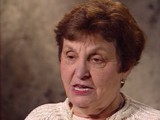
Edward was born to a Jewish family in Hamburg. In 1935, the Nuremberg Laws prohibited marriage or sexual relations between German non-Jews and Jews. Edward was then in his mid-twenties. Edward was arrested for dating a non-Jewish woman. Classified as a habitual offender, he was later deported to the Sachsenhausen concentration camp, near Berlin. He was forced to perform hard labor in construction projects. Edward had married shortly before his imprisonment, and his wife made arrangements for their…
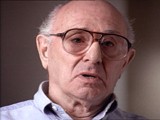
Edward was born to a Jewish family in Hamburg. In 1935, the Nuremberg Laws prohibited marriage or sexual relations between German non-Jews and Jews. Edward was then in his mid-twenties. Edward was arrested for dating a non-Jewish woman. Classified as a habitual offender, he was later deported to the Sachsenhausen concentration camp, near Berlin. He was forced to perform hard labor in construction projects. Edward had married shortly before his imprisonment, and his wife made arrangements for their…
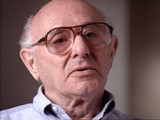
After war began in September 1939, the Germans established a ghetto and Jewish council in Izbica. Tomasz's work in a garage initially protected him from roundups in the ghetto. In 1942 he tried to escape to Hungary, using false papers. He was caught but managed to return to Izbica. In April 1943 he and his family were deported to the Sobibor killing center. Tomasz escaped during the Sobibor uprising. He went into hiding, and worked as a courier in the Polish underground.
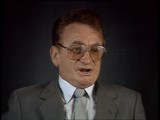
Bella was the oldest of four children born to a Jewish family in Sosnowiec. Her father owned a knitting factory. After the Germans invaded Poland in 1939, they took over the factory. The family's furniture was given to a German woman. Bella was forced to work in a factory in the Sosnowiec ghetto in 1941. At the end of 1942 the family was deported to the Bedzin ghetto. Bella was deported to the Graeben subcamp of Gross-Rosen in 1943 and to Bergen-Belsen in 1944. She was liberated in April 1945.
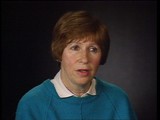
Because he was Jewish, Max could not join the army when World War II began. Instead, he had to perform labor service. In October 1940, Max and his mother were deported to the Gurs camp in France. In Gurs, Max met his future wife, Hanne. In 1941, with the help of the Children's Aid Society (Oeuvre de Secours aux Enfants; OSE), Hanne left the camp. Max followed in July 1942. He escaped to Switzerland through the French Alps and was in internment and refugee camps throughout the war. Hanne reached Switzerland…
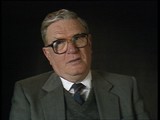
Beatrice's family lost their textile business and home when the Nazis barred Jews from owning property. The family was deported to camps. Beatrice, her sister, and their mother were sent to Gurs. The Children's Aid Society (OSE) later placed the girls in homes and convents, where they feared Allied bomb attacks, but escaped the horrors of camp life. Their parents perished.

Hanne's family owned a photographic studio. In October 1940, she and other family members were deported to the Gurs camp in southern France. In September 1941, the Children's Aid Society (OSE) rescued Hanne and she hid in a children's home in Le Chambon-sur-Lignon. Her mother perished in Auschwitz. In 1943, Hanne obtained false papers and crossed into Switzerland. She married in Geneva in 1945 and had a daughter in 1946. In 1948, she arrived in the United States..
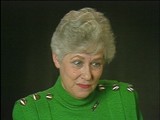
The Germans occupied David's town, previously annexed by Hungary, in 1944. David was deported to Auschwitz and, with his father, transported to Plaszow. David was sent to the Gross-Rosen camp and to Reichenbach. He was then among three of 150 in a cattle car who survived transportation to Dachau. He was liberated after a death march from Innsbruck toward the front line of combat between US and German troops.

The Germans occupied Kolo in 1939. In 1942 Alan was deported to the Lodz ghetto where he worked in food distribution. He took food each day to Mordechai Chaim Rumkowski, chairman of the Jewish council. In 1944 Alan was forced to unload trainloads of coal and munitions in Czestochowa. In 1945 he was sent to the Dora-Mittelbau camp. As the Soviet army advanced, the inmates were transferred to Bergen-Belsen, where British forces liberated them in April.
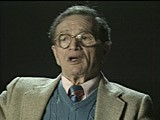
Robert and his family were Jehovah's Witnesses. The Nazis regarded Jehovah's Witnesses as enemies of the state for their refusal to take an oath of loyalty to Adolf Hitler, or to serve in the German army. Robert's family continued its religious activities despite Nazi persecution. Shortly before Robert's birth, his mother was imprisoned briefly for distributing religious materials. Robert's hip was injured during delivery, leaving him with a disability. When Robert was five years, he was ordered to report…
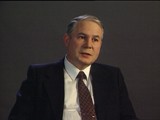
In 1936, David moved to Bucharest to live with his father. As Romania came under German influence, Romanian authorities introduced increasingly harsh measures against Jews. Antisemitic agitation increased and Jews came under attack in the streets of Bucharest and in other public places. David's father decided David should leave the country and arranged passage for him to Palestine. In December 1941, David left Romania from Constanta, a port city on the Black Sea, on the Struma, an old cattle boat. The…

In 1936, David moved to Bucharest to live with his father. As Romania came under German influence, Romanian authorities introduced increasingly harsh measures against Jews. Antisemitic agitation increased and Jews came under attack in the streets of Bucharest and in other public places. David's father decided David should leave the country and arranged passage for him to Palestine. In December 1941, David left Romania from Constanta, a port city on the Black Sea, on the Struma, an old cattle boat. The…
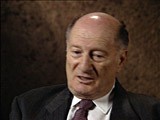
In 1936, David moved to Bucharest to live with his father. As Romania came under German influence, Romanian authorities introduced increasingly harsh measures against Jews. Antisemitic agitation increased and Jews came under attack in the streets of Bucharest and in other public places. David's father decided David should leave the country and arranged passage for him to Palestine. In December 1941, David left Romania from Constanta, a port city on the Black Sea, on the Struma, an old cattle boat. The…
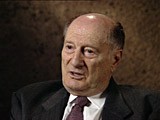
In 1936, David moved to Bucharest to live with his father. As Romania came under German influence, Romanian authorities introduced increasingly harsh measures against Jews. Antisemitic agitation increased and Jews came under attack in the streets of Bucharest and in other public places. David's father decided David should leave the country and arranged passage for him to Palestine. In December 1941, David left Romania from Constanta, a port city on the Black Sea, on the Struma, an old cattle boat. The…
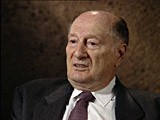
In 1936, David moved to Bucharest to live with his father. As Romania came under German influence, Romanian authorities introduced increasingly harsh measures against Jews. Antisemitic agitation increased and Jews came under attack in the streets of Bucharest and in other public places. David's father decided David should leave the country and arranged passage for him to Palestine. In December 1941, David left Romania from Constanta, a port city on the Black Sea, on the "Struma," an old cattle boat. The…

Flory was born into a Sephardic Jewish family. When Flory was a young girl, her mother moved to Zagreb with Flory's stepfather; Flory joined them after living with her grandmother for two years. In Zagreb, Flory took music lessons and learned how to play the accordion. Germany and its allies invaded Yugoslavia in April 1941, partitioning the country and establishing a fascist regime under the Ustase (pro-German Croatian nationalists) in Croatia. The Ustasa regime soon imposed anti-Jewish regulations in…
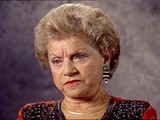
The Germans annexed Austria in March 1938. In 1939, Hans fled first to Hungary and then to Italy. He and his parents were interned in various towns. Hans's father became ill and died in 1940. In 1943, Hans and his mother were warned of German plans to deport Jews from Italy to Poland. They moved to smaller towns until liberation by the British in August 1943. Hans worked as an interpreter for the Allies until 1945, when he worked for the American Jewish Joint Distribution Committee and helped resettle…
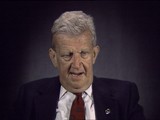
Ivo grew up in a middle-class Jewish family in Zagreb. He experienced little overt antisemitism until the Germans and their allies invaded Yugoslavia in April 1941 and installed a fascist Ustasa government in Croatia. The Ustasa regime began killing Jews, Serbs, and Roma (Gypsies). Ivo's family escaped to Italian-occupied territory, where the Italians tried to protect Jewish refugees. Ivo lived in Italian internment camps, including the Rab island camp, before moving to mainland Italy in 1944. He worked…
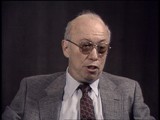
Amid intensifying anti-Jewish measures and the 1938 Kristallnacht ("Night of Broken Glass") pogrom, Johanna's family decided to leave Germany. They obtained visas for Albania, crossed into Italy, and sailed in 1939. They remained in Albania under the Italian occupation and, after Italy surrendered in 1943, under German occupation. The family was liberated after a battle between the Germans and Albanian partisans in December 1944.
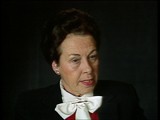
We would like to thank Crown Family Philanthropies, Abe and Ida Cooper Foundation, the Claims Conference, EVZ, and BMF for supporting the ongoing work to create content and resources for the Holocaust Encyclopedia. View the list of donor acknowledgement.